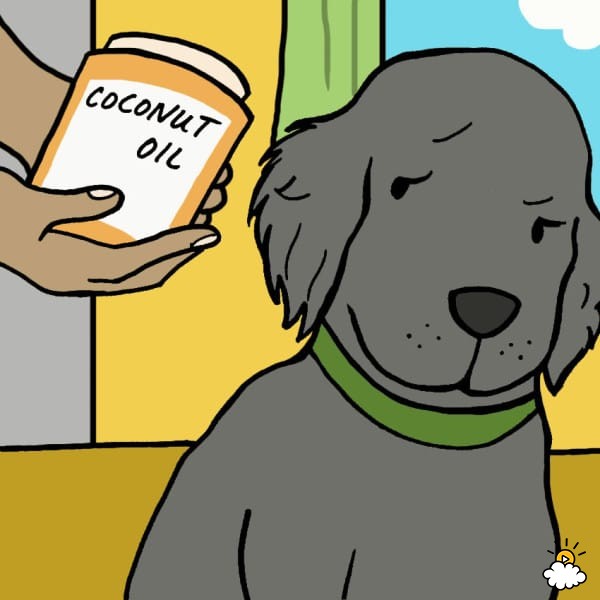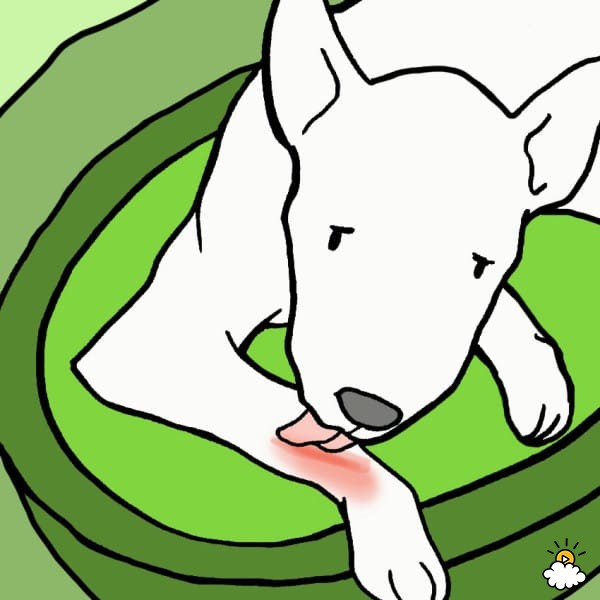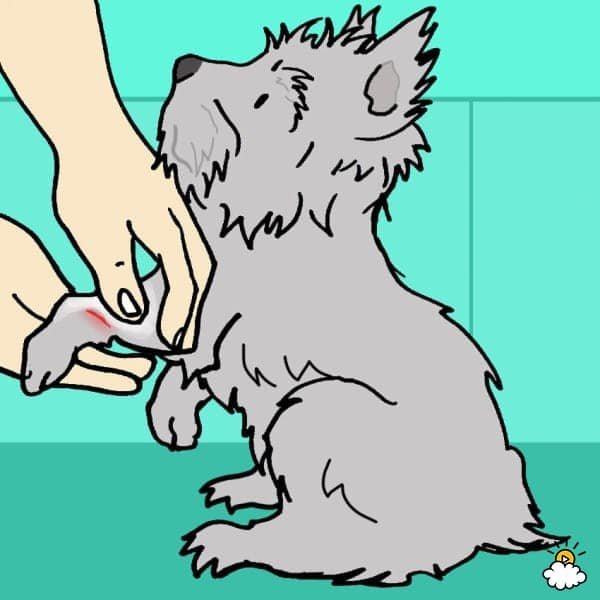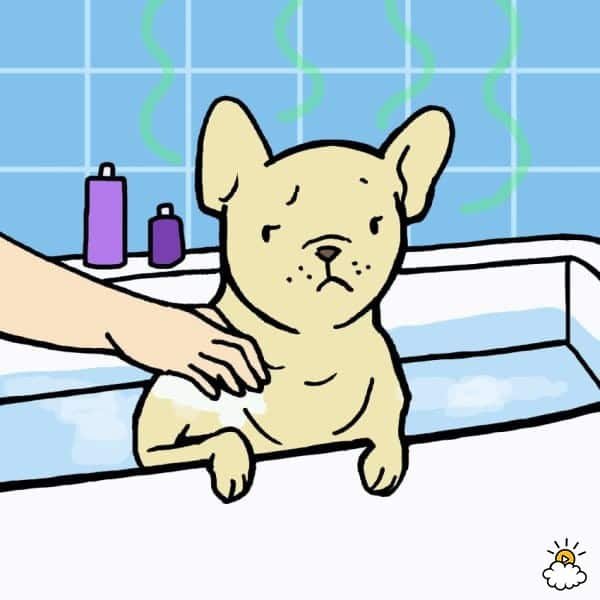Everyone who is up to speed on health trends is adding coconut oil to just about everything including their food, skin, and hair. Unrefined, organic coconut oil is lining the shelves of health food stores across the country.
Pet owners have noticed its health benefits for themselves and now incorporate coconut oil into their dog’s life as well. After all, dog lovers will stop at nothing to make sure their dog is happy and fit.
Research is still being done on coconut oil to learn the extent of its benefits and possible side effects, but coconut oil has to gain popularity as a “superfood.”
There are some notable benefits of coconut oil for dogs and different ways to use it in your dog’s daily life. It’s an alternative treatment for a variety of canine conditions, but be sure to check with your vet first before using. You should use in moderation and follow your vet’s recommendation.
Is Coconut Oil Good For Dogs?

The short answer is yes! Coconut oil is totally good for your dog in moderation, but be sure to check with your vet first. PetMD reports, “While coconut oil is generally safe for dogs, some canines may have an allergic reaction to the supplement. Additionally, giving a dog too much coconut oil in the diet could result in diarrhea.”
Let’s quickly get to the science. The huge benefit of coconut oil in dogs is that it the oil is comprised of more than 90 percent saturated fat.
Some people equate the term “saturated fat” to being unhealthy, but that is not the case with coconut oil because its saturated fats are mostly made up of medium chain triglycerides (MCT). According to The American Society of Nutrition, “because coconut oil is made of primarily medium chain fatty acids, it is broken down immediately for use rather than stored.”
Fat science can get a bit confusing, but what’s important is that MCT’s are good fats that contain lauric and caprylic acid that help with everything from weight loss to digestive improvement, immune-system support, skin and coat health, and thyroid health and much more. The key is moderation, so be sure to check with your vet to monitor your dog’s cholesterol levels.
Can Dogs Eat Coconut Oil?

Sure, dogs can eat coconut oil. It has a very low toxicity and takes over two years to go rancid, so it’s a safe dietary supplement for your pet.
Adding a hint of coconut oil to your dog’s food each day will reap many benefits. Start with about one teaspoon per 10 pounds of body weight, or one tablespoon for a 30-pound dog. It’s wise to start with a bit less to make sure your dog tolerates it well. Some dogs will exhibit side effects such as flu-like symptoms if given too much too soon.
Coconut oil does not contain omega-3 oils such as fish, krill, or flaxseed oil. Omega-3’s are essential to your dog’s diet, so rotating coconut oil with other oils high in omega-3’s is the best choice for your dog’s health.
Most dogs will love the taste of coconut oil, but if they are fussy eaters, you could substitute coconut milk or water as an alternative. Don’t skimp on the coconut oil that you buy. Your dog should have the same quality coconut you feed yourself. In fact, you could even share! Look for unrefined (virgin) coconut oil in glass jars. Trader Joe’s makes a terrific coconut oil that can easily be split between owner and pooch.
Benefits of Coconut Oil For Dogs

There are many coconut oils uses for dogs and several health benefits they can gain. Dog owners are finding that their furry friends are sharing some of the same benefits that they are when adding coconut oil to an already healthy diet.
1. Healthy Coat

One potential benefit of coconut oil is sleek and glossy. Consult with your vet first if you’d like to try coconut oil in your dog’s food to promote coat health.
2. Healthy Skin

Coconut oil helps a variety of skin conditions such as eczema, hot spots, dry skin, yeast and fungal infections, bites, and stings. When applied topically for skin conditions such as itchy paws or ears, rub a small amount on the affected area a few times a day.
Dogs will love a “coconut oil spa treatment” from their adoring owner. Coconut oil can safely be used alongside any prescribed medication from your veterinarian, but it’s always a good idea to check with them first.
The consistency of coconut oil varies depending on temperature. It usually starts to soften or liquefy at around 78 °F, so if it is a bit chunky, just rub your hands together and it will rapidly melt, resulting in a luxurious oil to apply to your dog’s irritated skin.
3. Treating Small Wounds And Cuts

Topically applying coconut oil to small wounds and cuts is a win-win for dogs. It has natural antiviral, antibacterial, and anti-fungal properties, making it a good choice for treating superficial wounds. Ingesting coconut oil is entirely safe, so no need to worry if your dog starts licking it. In fact, licking can improve their doggy breath!
Even so, put your dog in a doggy sweater and supervise them until the coconut oil fully absorbs into their skin. This usually takes about five minutes.
Plain coconut oil is excellent for treating small wounds and cuts, but if you are feeling adventurous, Dogs Naturally Magazine shared a recipe for an alternative topical antibiotic for your dog:
1. Put four tablespoons of coconut oil in a glass jar or bottle.
2. Let it sit in the sun in a warm spot until it reaches room temperature.
3. Add 12 drops of oregano oil (be sure you don’t apply oregano oil directly to your dog).
4. Mix the coconut oil and oregano oil together with a spoon.
5. Use the cream as a topical antibiotic (it’s OK if your dog licks it, too).
6. Place a lid on the jar, and it will last several months.
4. Doggy Odor

In addition to helping bad breath in dogs, coconut oil helps prevent a stinky dog. It’s basically a mouthwash and deodorant in one! Adding small amounts of coconut oil to a dog’s diet is said to fight the offensive odors that sometimes escape from your dog. The recommended dose for oral care is one teaspoon per 10 pounds of dog, or one tablespoon for a 30-pound dog.






